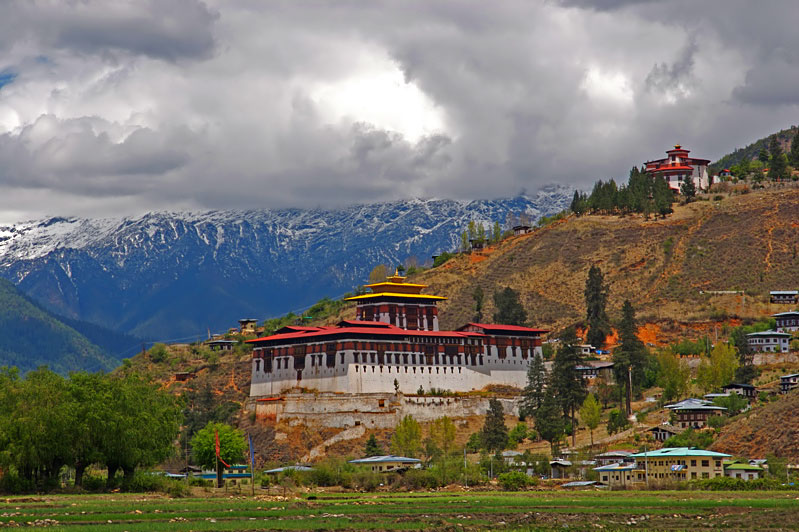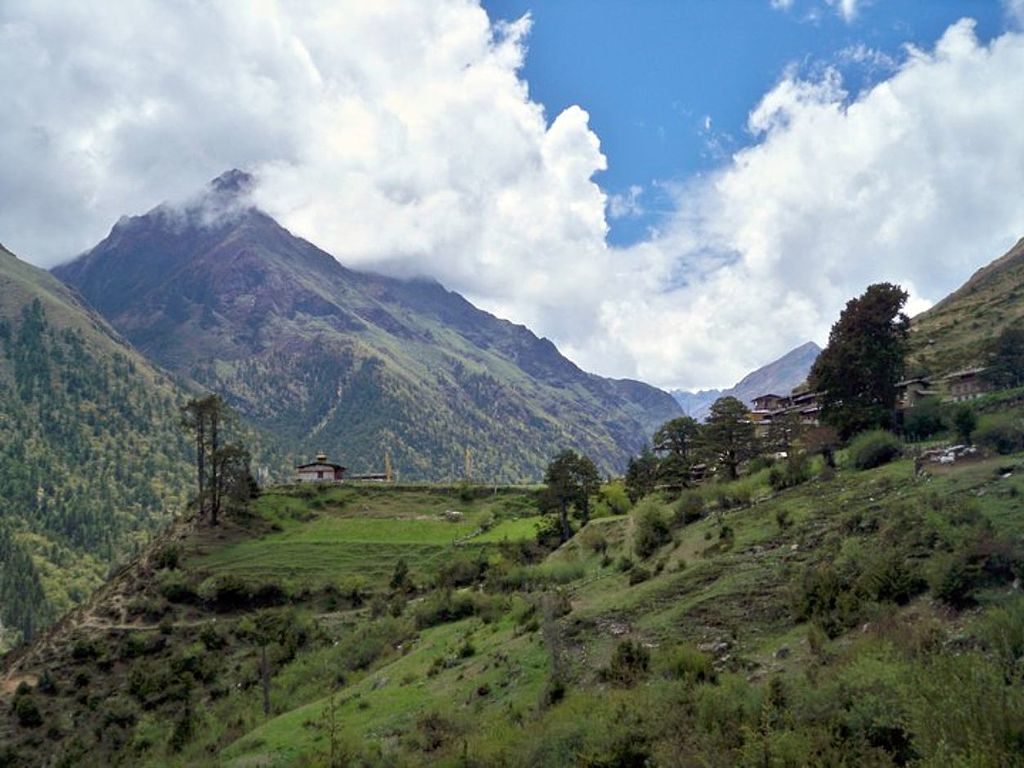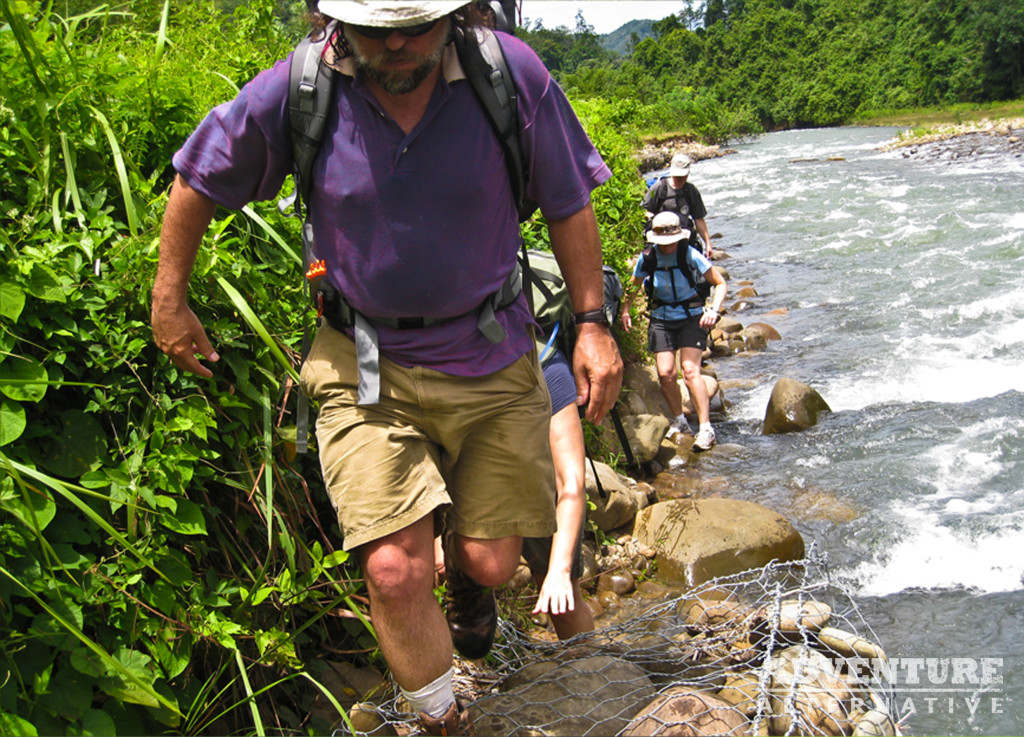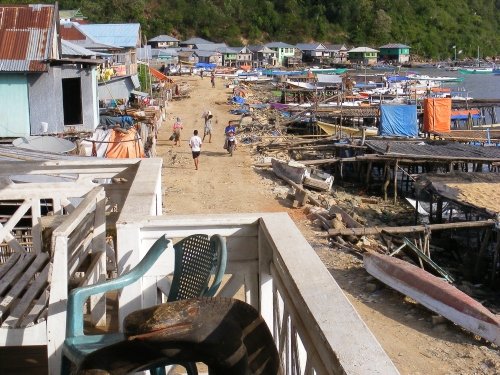Bhutan is the World's Only Carbon Negative Country - How is possible?

Inspired by the National Geographic travel’s article from October 2017 “Visit the World’s Only Carbon Negative Country” www.nationalgeographic.com/bhutan/carbon-negative-country-sustainability/
I did a bit of research and I discovered interesting aspects not so well highlighted in the article (in my opinion).
I found some information in this article by Climate action.
climateactionprogramme.org/the_worlds_only_carbon_negative_country and others listed in the source list.
Bhutan, officially the Kingdom of Bhutan is a landlocked country in South Asia. Located in the Eastern Himalayas, it is bordered by Tibet Autonomous Region of China in the north, the Sikkim state of India and the Chumbi Valley of Tibet in the west, the Arunachal Pradesh state of India in the east, and the state of Assam and North Bengal in the south. (Wikipedia)
Bhutan produces 1.5 million tonnes of carbon every year, but thanks to the country’s 72 percent forest coverage, more than 6 million tonnes of carbon is absorbed.
Bhutan’s population is only around 750,000; however, many other small countries have not achieved even carbon neutral status. Since 1972, Bhutan has based their political decisions on a Gross National Happiness (GNH) index, rather than Gross Domestic Product (GDP).
All government policies are vetted according to GNH, and what the Bhutanese call the four pillars: good governance, sustainable promotion of socioeconomic development, preservation of culture and environmental conservation.
From 2009, Bhutan introduced a series of policies to ensure the country stayed carbon neutral including a constitutional amendment to guarantee forested areas would not fall below 60 percent, free hydroelectric power generated by Bhutan’s many rivers was prioritized over fossil fuels and export logging was prohibited.

The Bhutanese government has partnered with Nissan to provide hundreds of electric cars to the country— thousands more are to be supplied in the near future, with Bhutan’s Prime Minister Tshering Tobgay aiming to eventually convert all of the country’s vehicles to electric power.
The government has also started providing rural farmers with free electricity to lessen their dependence on wood stoves for cooking.
Additionally, even more, trees have been planted, last June volunteers set a world record by planting 49,672 trees in just one hour.
Is climate change affecting Buthan?
Richard Black, the ECIU’s director, told the Guardian that the country’s push on agroforestry made sense because of its acute vulnerability to climate change.
“As a small state high in the Himalayas, Bhutan faces disruption to water supplies, extreme weather and impacts on ecosystems as a result of changes to the climate, so it is in their interests to address the problem both domestically and through the UN climate process,” he said.
Thinley Namgyel, the country’s chief negotiator in Paris, said public concern about climate change had been a key policy driver, in a country dominated by small subsistence farmers.
“People are already noticing the temperature changes,” he said. “High mountains which should be closed for months are now open year-round. Monsoon rains are not arriving on time, and then appearing when we don’t need them, destroying crops.”
Many water sources outside forest areas were drying up for reasons unknown, Namgyel said, while flash floods were intensifying.
“We see a huge [potential] disaster developing from the mountain glaciers, which are retreating,” Namgyel said. “This threatens people in settlements downstream, as well as the hydropower that we depend upon.”
Preserving biodiversity has knock-on benefits for agriculture, waterways, ecosystem services and general resource wealth, that need not be directly related to climate change. It could, for example, aid regional exports, Black said.

Can tourism help? How?
Unless you’re from India, Bangladesh, or the Maldives, you’ll need a visa to explore this country in South Asia—there is no independent travel. In addition to the visa ($40), tourists must pay an additional $200 to $250 “Minimum Daily Package Fee” and book through an officially approved tour operator. The fee covers lodging in three-star accommodations (extra luxury can be had for a premium), all meals, a licensed tour guide, camping and trekking equipment, domestic travel (excluding flights), and taxes and fees.
A daily sustainable development fee of $65 is also included in the package. This goes towards funding education, healthcare, and poverty alleviation, along with the building of infrastructure to accommodate growing tourism.
WHAT?S NEXT! The country is now aiming to grow 100 percent organic food by 2020, to produce zero waste by 2030, to generate zero net greenhouse gas emission and to increase its share of renewables, particularly wind and solar
Sources:
National Geographic, Since its inception nearly 130 years ago, the core purpose of National Geographic has been to further the knowledge and awareness of our world. National Geographic Travel is Your guide to traveling with passion and purpose.
Climate Action, established in 2007 and headquartered in London, UK, works in a unique, contractual partnership with the United Nations Environment Programme (UNEP) – the world’s foremost body on environmental protection and stewardship. It establishes and builds partnerships between business, government and public bodies to accelerate international sustainable development and advance the ‘green economy’.
The Guardian 2015, Bhutan has ‘most ambitious pledge’ at the Paris climate summit https://www.theguardian.com/environment/2015/dec/03/bhutan-has-most-ambitious-pledge-at-paris-climate-summit
Science ABC https://www.scienceabc.com/social-science/carbon-negative-country.html
Ecowatch https://www.ecowatch.com/this-country-isnt-just-carbon-neutral-its-carbon-negative-1882195367.html
Adventure Alternative and sustainable tourism in Borneo

Adventure Alternative and sustainability: the Borneo Camp and other projects related to sustainable tourism.
The Adventure Alternative travel company and independent tour operator offers a wide range of trips from high altitude mountaineering expeditions, treks around the world, safaris in east Africa, school expeditions, gap years and international development trips.
It was founded and managed by Everest mountaineer Gavin Bate on a strict platform of responsible business practises. Adventure Alternative invests heavily in local enterprises to act as ground handlers and provides many careers in developing countries.
At the same time, Gavin also set up his charity Moving Mountains, which was initially a personal concern after having worked with various aid agencies in East Africa. The money for the charity was raised by his personal expeditions, lecture circuit talks and articles. Moving Mountains is now a large concern with a remit in Kenya, Nepal and Borneo.
With this article, they will introduce us to their project called BorneoCamp.
BorneoCamp is a month-long trip which is part of their school expedition series. It offers a unique chance to visit an indigenous tribe in the jungles of Sarawak and see how their charity, Moving Mountains, is working with the Penan people to plant thousands of trees and provide advocacy against logging. The Penan only recently began receiving visitors into this area and they are the only organisation offering tours to this part of the world.
The project itself is subject to change depending on the needs of the community and the time of year. Rather than modifying the trip based on the needs of the client, they cater to the needs of the locals and continuously discuss these requirements with them. The local community of Penan determines numbers of visitors, what tourists do in the area, and they get an income from logistics, guiding and accommodation/food.
This trip directly supports its carbon offsetting project – the Carbon Enrichment Programme. This allows their clients to live and work alongside the Penan tribe. This is a mixed tour involving volunteering; adventure travel; a jungle survival course; a river safari; snorkelling on the tropical islands; climbing Mt Kinabalu; homestays in the Malay villages; and rafting!
The tree-planting project in Borneo is run by a local Penan Koperasi (co-operative) which was enabled and funded by Moving Mountains as part of the long term sustainability of the project. The project has planted up to 15,000 saplings every year for three years now and aims to increase this to 50,000 trees per year in 5 years time. The annual cost for this is £10,000 and a significant proportion of this comes from Adventure Alternative clients, while the rest is money donated to Moving Mountains.
Adventure Alternative makes a separate donation of £100 per person as part of the ‘trip fee’ for any visitor to the Penan area. However, any Adventure Alternative client can donate to the opt-in scheme voluntarily as part of a carbon offset programme.
This is not a third party scheme, it was set up by Adventure Alternative and their own office in Kuching on the request of the Penan people in Sarawak, as part of their policy to put funds back into relevant long-term sustainable projects, and involve themselves deeply and personally with all their own initiatives, building long term relations with local communities.
This attention to detail is enabled by their business model. They set up regional companies, including Adventure Alternative Borneo which resides in Kuching and oversees all of their tours in this area.
Ecoflores consultancy for sustainable tourism in Indonesia

A precious jewel in the Indonesian archipelago, the island Flores, has a rich cultural history, breathtaking natural wonders and is blessed with excellent and innumerable options for adventure tourism.
Part of the eastern islands, Nusa Tenggara Timur, Flores is a beautiful, mountainous island stretching 360 km from east to west. It is part of a volcanic belt that stretches from Sumatra through Java and Bali to the Banda sea. The first contact for Florence with the outside world was recorded in the 12th century by Chinese sandalwood traders. In the 16th century, Portuguese traders and missionaries named the place ‘the cape of flowers’ for its beautiful underwater world of coral fish and other marine life.
Crystal clear waters, white and pink sandy beaches, jungle and mountains combined with a colourful parallel underwater world make this a truly remarkable place.
Eco Flores actively wants to save this cultural and natural heritage.

Eco Flores is a Foundation working for the sustainable development of Flores, which is also one of the three lesser developed areas in Indonesia, located in the Coral Triangle and home of the Komodo Varaan, one of the World Wonders of Nature. In 2009, 15.000 tourists visited the island, and the government is aiming at 175.000 visitors for 2013; This has a massive impact on the environment and the local population.
Eco Flores Foundation aims to:
– Define sustainability issues on Flores at present and in the foreseen future;
– Identify local and international initiatives working for the sustainability of Flores;
and
– Facilitate cooperation and sharing of expertise. The foundation publicizes local sustainability initiatives and funding needs on the Eco Flores website, connect local sustainability initiatives and projects in similar areas of work, and combine sustainability efforts across Flores to foster sharing of experiences, resources, and best practices.
How do they achieve to do that? Eco Flores, as its name suggests, promotes ecotourism, that means that visitors are aware of the responsibility they have through locals and the environment. Ecotourism is about uniting conservation, communities, and sustainable travel, this means that those who implement and participate in ecotourism activities should follow the following ecotourism principles:
– Minimize impact.
– Build environmental and cultural awareness and respect.
– Provide positive experiences for both visitors and hosts.
– Provide direct financial benefits for conservation.
– Provide economic benefits and empowerment for local people.
– Raise sensitivity to host countries’ political, environmental, and social climate.

On Flores, as in the rest of Indonesia, life is centred around three relationships:
– between man and his God;
– between man in his environment;
and
– between man and his fellow man.
All tourism attractions/activities in Flores focus around those three relationships. All cultural rituals and tradition of old religious practices are linked to those relationships.
Understanding those three relationships will make a trip to Flores more interesting; it not just a travelling, but an opportunity for deep-down learning and knowing the high value of Flores.
On their website www.ecoflores.org, you find projects in various fields related to sustainability.
All projects involve remarkable partners such as Florenese national and international governmental and non-governmental organizations, universities, scientists, companies with CSR Program and concerned individuals. Currently, they’re looking for funding for several projects; to learn more, have a look at www.ecoflores.org.
Are you interested to know more?
Ask #STouW by Sara Vitali about:
#sustainabletourism consultancy,
#socialmedia strategies for tourism sector & linked sustainable, responsible, green or eco businesses;
#sustainabledevelopment through tourism.
http://sustainabletourismworld.com/sara-vitali-stw-founder/
